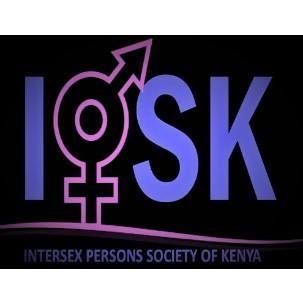Project
Intersex Persons’ Ending Stigma and Secrecy
-
Amount Funded
19,430 EUROProject Duration
01 May 2019 - 30 Apr 2020 -
-
Lead organisation
-
The Intersex Persons Society of Kenya (IPSK) project Intersex Persons Ending Stigma and Secrecy advances human rights protection and support of intersex children and adults through public education and community engagement, enabling our community to access relevant information, access to appropriate healthcare, and to challenge discriminatory and oppressive cultural practices, laws relating to sex development variations, and resulting gender variance.
Visibility is key for intersex persons in Kenya which can be harnessed by creating awareness. With the tools and information suitable and effective for advocacy developed, IPSK organises awareness campaigns for a more open, tolerant, and enabling society towards intersex children, people and their families.
-
Organisation
The Intersex Persons Society of Kenya (IPSK) project Intersex Persons Ending Stigma and Secrecy advances human rights protection and support of intersex children and adults through public education and community engagement, enabling our community to access relevant information, access to appropriate healthcare, and to challenge discriminatory and oppressive cultural practices, laws relating to sex development variations, and resulting gender variance.
Visibility is key for intersex persons in Kenya which can be harnessed by creating awareness. With the tools and information suitable and effective for advocacy developed, IPSK organises awareness campaigns for a more open, tolerant, and enabling society towards intersex children, people and their families.
-
Project
In the Kenyan society, culture, and laws are largely silent on the human rights violations and lived realities of intersex people, particularly children and young people. The Intersex Persons’ Ending Stigma and Secrecy project provides a framework to facilitate the recognition of the rights and civil liberties of intersex people in Kenya. Intersex Persons Society of Kenya’s engagement involves collaboration with legal, medical, cultural, religious, and civil society to identify and document the incidence and experiences of intersex children and people in Kenya.
Through radio, print and media engagement, the project feeds in the advocacy strategy with a more in-depth understanding and appreciation of the social, cultural and political attitudes in our society and how to most effectively influence social change by developing people-focused communication and intervention tools.
Additionally, this project creates social awareness and collaborates with other stakeholders nationally, regionally, and internationally to more specifically address these issues from a human rights perspective with the goal to end the stigma and secrecy surrounding children and people with intersex conditions in Kenya and promote a more just and nurturing climate for our community in Kenya.
-
-
In the Kenyan society, culture, and laws are largely silent on the human rights violations and lived realities of intersex people, particularly children and young people. The Intersex Persons’ Ending Stigma and Secrecy project provides a framework to facilitate the recognition of the rights and civil liberties of intersex people in Kenya. Intersex Persons Society of Kenya’s engagement involves collaboration with legal, medical, cultural, religious, and civil society to identify and document the incidence and experiences of intersex children and people in Kenya.
Through radio, print and media engagement, the project feeds in the advocacy strategy with a more in-depth understanding and appreciation of the social, cultural and political attitudes in our society and how to most effectively influence social change by developing people-focused communication and intervention tools.
Additionally, this project creates social awareness and collaborates with other stakeholders nationally, regionally, and internationally to more specifically address these issues from a human rights perspective with the goal to end the stigma and secrecy surrounding children and people with intersex conditions in Kenya and promote a more just and nurturing climate for our community in Kenya.
-
“Human rights however simple and clear it is to some of us, it may not be as clear to everyone. For example, when the church opposed one of the bills we were supporting on registration we did not understand why it would dispute what is black and white. We believe that as long as there is dialogue, and everyone is at the table, progress can be made.” IPSK
The main goal of the IPSK empowerment grant project was to advance the human rights protection and support of children and people with intersex conditions through public education and community engagement, enabling our community to access relevant information, access appropriate healthcare, and to challenge discriminatory and oppressive cultural practices relating to sex development variations, and resulting gender variance. Throughout the project, IPSK has been able to engage in dialogue with to influence policy as part of the Intersex Taskforce. This advocacy resulted in a great landmark in 2019 when the intersex persons were included in Kenya National Census.
Additionally, IPSK was assigned a seat within The Intersex Persons Implementation Coordination Committee (IPICC) established by the Hon. Attorney General, whose mandate to implement the recommendations from the Intersex Taskforce led to the development of 2 bills currently before Parliament (1) The amendments to the registration of persons senate bill 14 of 2019seeking to incorporate the intersex person as third sex registration and (2) Reproductive health Bill and Assisted reproductive Technology Bill that looks at all genders reproductive rights.
Other milestones by IPSK included:
- Using the media as a tool to improve the lives of the intersex community in the country. The ability of intersex persons to stand out and be counted was a huge win; this was as a culmination of the continuous use of media to encourage them to take a space.
- Advocacy and engagement efforts by duty bearers through round table meetings on matters of intersex persons. The meetings was to deliberate on the inclusion of intersex in the census and Kenya Institute of curriculum Developments (KICD) meetings.
- Maximising on digital media. By using the website as a tool for referral of intersex persons the team has managed to have 13 referrals of intersex persons 3 scholars who wanted to partner with us.
-
News



